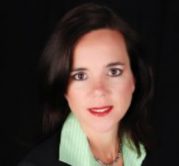Getting to orange
Interrupting patterns to find a more diverse pool of applicants

You heard it when you were a kid. You probably don’t remember when you heard it for the first time, nor do you recall the first time you passed it along to someone else. It’s one of those old, cheesy, pun-filled knock-knock jokes that made you laugh, even if it wasn’t all that funny.
“Knock, knock… Who’s there?
Banana… Banana who?
Knock, knock… Who’s there?
Banana… Banana who?
Knock, knock… Who’s there?
Orange… Orange who?
Orange you glad I didn’t say banana?”
The joke is old, but the sentiment remains evergreen. Breaking the expected repetition is what makes the joke work. It’s that same breaking of repetition that is happening in the financial industry and needs to continue to develop. Thinking in the same old patterns gives you the same old results and that includes your hiring practices.
One area that the financial industry has done a great deal of work in improving over the past few decades is gender equality. Credit unions continue to push forward with more opportunities for women in senior management positions. Women have transformed the industry and helped make a road map for others to follow in terms of how to create the next generation of pioneers bringing new ideas and insights into the process. Looking to the lessons learned by the increased involvement of women in the industry provides a unique opportunity to leverage what is already known to continue to develop further diversity.
I talk to credit union clients everyday who want to know how to find and keep the best business development and member service representatives. They want to know where to look and what questions to ask. They want to be able to tell the difference between someone who looks good on paper and someone who will deliver once they are actually on the job. They are dealing with the everyday stresses of keeping things afloat while looking ahead to bringing the next generation into the fold.
It’s easy to look at studies into the need for the industry to diversify and attract young minority professionals into the field. But how does that become a reality? If you find yourself staring at another stack of virtually the same applications, the solution is to change where you are looking.
Here are concrete steps you can take to get a little more orange and less banana in your stack of applications:
- Go to local colleges and universities for fresh young talent. Speak with the dean’s office about regularly scheduled talent and job fairs. Consider setting up an internship program. Your company will serve as a role model to help cultivate students’ and graduates’ interest. This personalizes the process by showing an active interest in their future.
- Be active in your community, especially among minority populations. Talk to groups and professional organizations who might have future leads.
- Embrace the new. It’s not easy to adapt in a world that feels like it is changing every time you turn around, but being able to connect with a younger generation and an increasingly diverse population means that you need to be able to break from the old patterns. Being able to adapt to changes and turn them into opportunities is a good standard business practice that doesn’t change just because we are talking about recruiting.
The most important part of finding “the next great employee” is about going out to find where they are right now and getting them excited about the opportunities in your industry. These relationships are the pipelines that will not only bring in fresh new faces and ideas, but also future members and revenue.
Where does diversity fit into the framework of your organization’s culture? It’s one of the first big questions asked when people start discussing “diversity.” How it is prioritized makes a huge difference in how effective your efforts will be. On the corporate level, there is often a dedicated Chief Diversity Officer who implements strategies to help with outreach and recruiting among underrepresented populations. For smaller organizations, having a human resources leader who is able to devote their time and efforts to the task is vital.
Diversity is one of those trendy words that gets thrown around as a catch-all for “not the same.” But it’s not just multi-culturalism, having an age and gender balance, or the inclusion of LGBQTA+ people, although those are all important. It’s about finding the best people from different backgrounds and bringing their experiences together to help your credit union continue to grow and prosper. It is about being open to everyone bringing their “whole self” to work, building and maintaining an environment where every voice is important and people feel like they have a stake in the process.
When recruiting the next generation of financial professionals, this is a baseline of what they expect when entering the workforce. It is not just “doing a job;” they want to feel like they are a part of something special, and they want to work somewhere that respects them for who they are. This is why, for those with the interest, the financial industry is so full of rich possibilities for personal fulfillment. There is a lot of room right now for young professionals who are willing to work hard to advance and become a part of something greater than themselves, something they can believe in.
When speaking to potential business development reps, that opportunity is a definite selling point. These are the self-starters, the ones who are driven by a competitive spirit and who are motivated by the idea that their salary is tied directly to their ability to make the sales. They want to be around people and have that spark to get other people interested in what they have to offer.
The industry is exciting in a different way for potential member service reps. The people who want these positions are the ones motivated by stability and being able to count on when their next check is going to come. They excel at being a part of a team and to them, the details are the part of the engine that makes everything run.
These are two very different kinds of people who want very different things, bringing their own skillsets to the table. Bringing in a new generation and allowing them to be their best, truest, whole selves in the process is a challenge. But figuring out where each individual would best fit within the diverse tapestry of your organization doesn’t have to be one.
That’s where a behavioral assessment tool, like the Omnia Profile, comes in handy. It breaks down the mysteries around the 17 behavioral types, helping you understand more about your candidate and how to help them unlock their potential.
Your dedication to expanding diversity and finding the best and the brightest of the new generation, regardless of background, helps to continue to grow the potential of your business. It gets the best applicants to your doorstep. The Omnia Profile helps you determine which of those candidates will be the best fit with your existing organization and how to develop their long-term potential. It helps you break out of the same old hiring mistakes and find that orange in a world full of bananas.

